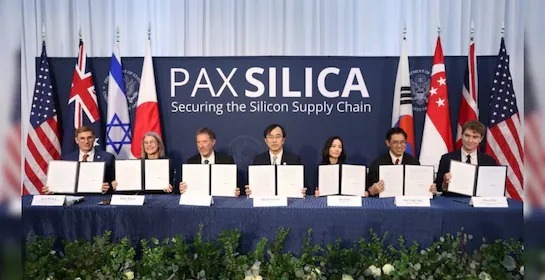@JUDGMENTTAG-ORDER
Alok Aradhe, J.@mdashIn this writ petition, the petitioner who was appointed as assistant project officer in Integrated Child Development Scheme Project (ICDS), Tendukheda by Janpad Panchayat, Tendukheda inter alia seeks a direction to the respondents to absorb his services in Women and Child Development Department of Government of Madhya Pradesh, The facts, necessary for adjudication of the controversy involved in the writ petition are narrated hereunder. The ICDS project was introduced by the Government of India through the Department of Human Resources Development for integrated delivery of certain services of pre-school children, pregnant and lactating women. The object of the scheme was to improve the health and nutritional status of children and women and to reduce the incidences of school dropouts and physical and social welfare and development of the child. Paragraph 47 of the scheme provides that even though funds will be provided by the Central Government, the staff will be borne on the appropriate cadres of the State and therefore, the State should sanction the posts (as per appendix) in the appropriate corresponding State pay scale. The anganwadi workers and their helpers will be honorary workers.
2. The State Government by order dated 2-6-1995 handed over the ICDS project at Tendukheda, district - Damon to Janapad Panchayat, Tendukheda and sanctioned the staffing pattern. An advertisement dated 15-12-1995 was issued by the Janpad Panchayat, Tendukheda. The petitioner in response to the aforesaid advertisement submitted an application. By communication dated 6-1-1996, the petitioner was asked to appear for interview on 17-1-1996. Thereafter by order dated 15-3-1996, the petitioner was appointed temporarily on the post of Assistant Project Officer. The order of appointment contained a stipulation that the petitioner would be required to complete the period of probation of two years and the post on which the petitioner is appointed is temporary and the petitioner shall not be treated as government servant. The order of appointment further contained a stipulation that services of the, petitioner can be terminated any time without assigning any reason.
3. Thereafter vide resolution dated 23-7-1998 passed by the Janpad Panchayat, Tendukheda the services of the petitioner were regularised on successful completion of the period of probation in anticipation of approval by the State Government. It has been averred in the writ petition that from time to time, the petitioner not only performed the duties of the post of Assistant Project Officer but he was assigned various duties which are performed by the employees of the State Government. The petitioner, in support of the aforesaid submission has annexed copies of such orders as Annexures P-12 to P-22.
4. A meeting of the District Level Departmental Advisory Committee was held on 17-3-1999 in which the resolution was passed to confer the status of government servants on the employees working in ICDS project, Tendukheda and the same was forwarded for approval to the State Government. Similarly Janpad Panchayat, Tendukheda and Zila Panchayat, Damoh passed the resolutions dated 22-6-2000 and 31-1-2004 respectively for treating the employees in ICDS project as government servants and the same were forwarded for approval to the State Government. It has further been averred in the writ petition that services of the employees in Denida Health and Family Welfare Scheme and the Tilhan Sangh as well as the services of the employees working in Overseas Development Administration Project were absorbed in the State Government. In support of the aforesaid stand, the petitioner has annexed copies of the orders dated 4-8-2005, 25-1-2006 and 17-11-998 as Annexures P-30, P-7 and P-6 respectively. It is also asserted that all the ICDS projects in the State Government are run by the State Government except in the Janpad Panchayat, Tendukheda and Sihawal. It is stated in the rejoinder that on 18-4-2010 the project has been taken over by the State Government and by an order dated 4-8-2010 passed by the State Government the ICDS project in Tendukheda has been transferred to Women and Child Development Department. In pursuance of the aforesaid order, vide order dated 5-8-2010, the project was taken over by the Project Officer, Women and Child Development Department Tendukheda. It is also averred that vide order dated 27-5-2009 in district - Damoh, eight ICDS projects have been launched including one in Tendukheda and number of posts are lying vacant in new projects. In the aforesaid factual backdrop, the petitioner has approached this Court.
5. Learned counsel for the petitioner submitted that though the petitioner was appointed under a particular project against the vacant sanctioned post after going through the process of selection, yet over a period of time he has been treated as employee of the State Government inasmuch as various duties which are performed by the employees of the State Government were entrusted to the petitioner. In this connection, learned counsel for the petitioner has invited the attention of this Court to Annexures P-12 to P-22: It is also submitted mat resolutions have been passed by the District Level Departmental Advisory Committee, Janpad Panchayat, Tendukheda and Zila Panchayat, Damoh to confer the status of government servants on the employees working in ICDS project, Tendukheda. It is further submitted that the project is perennial in nature and the petitioner has been performing the duties in the project for past 17 years. It is further submitted that the ICDS project was launched in the year 1975 by the Central Government and the same is continuing and in future also the same would continue. It is also contended that since the project has already been taken over by the State Government, therefore, action of the State Government in treating the petitioner as project employee is absolutely unjustified. In support of his submissions, learned counsel for the petitioner has placed reliance on the decisions in
6. On the other hand, learned Additional Advocate General submitted that the petitioner was appointed on contract basis as is evident from the order of appointment. It is urged that no service rules have been framed governing the service conditions of the petitioner. The petitioner has been appointed on contract basis and a project employee has no right to seek regularisation. It is further submitted that in pursuance of the directions issued by the Central Government to change the staffing pattern in the year 2003, the strength of the employees working in ICDS project has been reduced. It is also contended that reliance placed by the learned counsel for the petitioner on decision in Kaberi Khastagir (supra) is of no assistance to the petitioner in the facts of the case, as the order of appointment of the employees in the aforesaid case contained a stipulation that their service conditions will be the same as that of the government employees whereas in the instant case, the order of appointment of the petitioner clearly stipulates that the services of the petitioner are temporary and the petitioner shall not be treated as government servant. In support of his submissions, learned Additional Advocate General has placed reliance on the decisions in
7. Learned counsel for the respondent No. 5 supported the stand of the petitioner.
8. On the other hand, learned counsel for the respondent No. 6 has submitted that ICDS project is a centrally sponsored scheme which has been implemented by the States all across the country on a sharing pattern of 90:10 for all components including supplementary nutrition programme. It has further been submitted that 90% of the operating cost for implementation of ICDS project is borne by the Central Government and the salary and allowances of the staff appointed for implementation of the project is borne on appropriate cadre of the State and in the appropriate corresponding State pay scales sanctioned by the State Government. It is also contended that guidelines on the staffing pattern and the recruitment rules for appointment of the staff under ICDS project are framed by the State Government and the State Government is responsible for recruitment of officers and staff and their service conditions under the ICDS scheme.
9. I have considered respective submissions made by learned counsel for the parties. Admittedly the ICDS scheme was promulgated by the Central Government on 2-10-1975 through the Department of Human Resource Development with the object of integrated delivery of certain services such as supplementary nutrition, immunisation, health check-up, referral service, non-formal education and health and nutrition education to preschool children and pregnant and nursing women. The Scheme was aimed at reduction of the incidence of school drop outs and laying the foundation for proper psychological, physical and social development of the child. Paragraph 47 of the Scheme reads under:
Even though funds will be provided by the Central Government, the staff will be borne on the appropriate cadres of the State and therefore, the State should sanction the posts (as per appendix) in the appropriate corresponding State pay scale. The Anganwadi workers and their helpers will be honorary workers.
10. Paragraph 47 of the Scheme was considered by the Supreme Court in Kaberi Khastagir (supra) and in paragraph 31 of the decision, the Supreme Court by taking into account paragraph 47 of the Scheme, held that it is difficult to accept the case of the State Government that employees of the project were project employees and not the employees of the State Government. The relevant extract of paragraph 31 of the aforesaid decision reads as under:
In fact Para 47 of the Scheme, which has been extracted hereinabove, in no uncertain terms makes it very clear that even though funds for the Scheme would be provided by the Central Government, the staff would be borne on the appropriate cadres of the States which would sanction the posts in the appropriate corresponding State pay scale. In the face of such provision it is difficult to accept that the writ petitioners were project workers and not the employees of the State Government.
11. Initially the petitioner was employed by the Janpad Panchayat. However, subsequently, by an order dated 18-4-2010 passed by the State Government, the ICDS project in Tendukheda has been taken over by the State Government and by an order dated 4-8-2010 the same has been transferred to Women and Child Development Department, In compliance of the aforesaid order, the project has been taken over by the Project Officer of the Women and Child Development Department. In view of the stand taken by the Central Government in paragraph 4 of its reply, which has not been controverted by the State Government, the State Government was under an obligation to frame Rules for appointment of the functionaries in respect of the posts in the Project. The State Government, therefore, ought to have framed the rules in respect of the service conditions of the employees working in the Project, Merely because the State Government has not framed the Rules under the Scheme, the contention made by learned Additional Advocate General that the decision in Kaberi Khastagir (supra) is distinguishable, cannot be accepted.
12. The petitioner in this writ ''petition has prayed for a direction to the respondents to absorb his services in Women and Child Development Department of Government of Madhya Pradesh. It is well settled that where an order or an action of State Authority is'' found to be illegal or in contravention of prescribed procedure or is arbitrary, unreasonable or irrational, the same is open to judicial review. In such a case, when the High Court finds that the action requires interference in exercise of power of judicial review, the High Court will not proceed to substitute its own decision in the matter as that would amount to exercise of power of the authority itself, but shall require the authority to consider the matter. It is equally well settled that the Court to direct an authority to ''consider'' only requires the authority to apply its mind to the facts and circumstances of the case and to take decision in accordance with law. [See.

